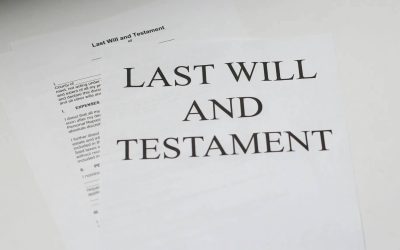The Madeira International Business Centre (MIBC) offers attractive tax benefits, but it also demands strict compliance. Recent developments show the Portuguese Tax and Customs Authority (AT) sharpening its audit focus.
Economic Substance Requirements
Every company under the MIBC regime must create real substance in Madeira. This includes creating jobs locally, not just on paper. The law requires companies to employ workers who are tax residents in Madeira. These jobs must go to individuals who genuinely live and pay taxes on the island.
AT’s New Audit Approach
The AT now looks deeper into the residency of employees. It no longer accepts residency certificates alone. Instead, it checks if employees maintain their centre of economic interests in Madeira.How does AT do this? By examining employee spending through the e-Fatura system. The tax authority reviews whether employees incur regular expenses in Madeira, such as housing, groceries, and services. This creates a clear picture of whether someone truly lives on the island.
Why This Matters for Companies
This shift in oversight means companies must go beyond formal registration. Having employees listed as Madeira residents is not enough. Their daily lives must also reflect real presence in the region.
If a company cannot prove this, it risks challenges during an audit. Non-compliance can lead to severe consequences, including the loss of MIBC benefits.
How Companies Can Prepare
Companies should review their compliance frameworks and ensure employees meet all residency requirements. A proactive approach reduces risks and protects the benefits of the MIBC regime.Practical steps include:
- Verifying that employees have Madeira as their main tax residence and residence permits.
- Ensuring employees maintain housing and daily expenses on the island.
- Keeping clear records that align with e-Fatura data.
The Other Side of the Coin: Contesting AT’s Approach
While the AT’s focus on substance is understandable, its new approach is not free from legal challenges. Based on constitutional law, tax law, and case law, several aspects may be contested.
Limits on AT’s Use of Personal Data
- Right to Privacy: Article 26 of the Portuguese Constitution protects private and family life, including financial data.
- Tax Secrecy: Article 64 of the General Tax Law (LGT) safeguards fiscal secrecy. Access to personal spending data can only happen under strict legal conditions.
- Proportionality: Authorities may only process personal data when strictly necessary and for lawful purposes. Using e-Fatura consumption data without clear legal grounds risks breaching proportionality.
Professional Travel and Residency
- Temporary Absences: The General Tax Law recognizes that professional travel does not automatically remove tax residency. A worker may live abroad temporarily but still keep Madeira as the centre of vital interests.
- Criteria for Residency: Residency must be assessed globally, considering housing, family ties, work location, and assets. Spending patterns alone cannot determine residency.
Burden of Proof and Justification
- Evidence Rules: AT cannot presume non-residency based only on missing e-Fatura records. Employees may have legitimate reasons for lower spending in Madeira, such as telework or frequent travel.
- Administrative Duty: Tax decisions must be properly justified. Courts have ruled that arbitrary use of consumption data is not a valid basis for disqualifying residency.
Relevant Case Law
Portuguese and European courts have stressed that privacy violations must be lawful, necessary, and proportionate.
Case law also highlights that fiscal secrecy protects taxpayers against intrusive investigations without clear legal basis.
Grounds for Contestation
- Employees and companies may challenge AT’s approach by arguing:Intrusion into private life without proper legal grounds.
- Misinterpretation of professional travel as loss of residency.
- Reversal of the burden of proof by relying solely on e-Fatura data.
- Use of personal data beyond its intended tax purpose, in breach of GDPR.
Final Thoughts
The AT’s enhanced audit strategy in the MIBC reflects its determination to ensure compliance. Yet, companies and employees should be aware of the legal limits that constrain tax authorities.
On one hand, businesses must strengthen substance by ensuring employees live and spend in Madeira. On the other hand, they should be ready to defend their rights if AT oversteps.
For companies operating in the Madeira International Business Centre, the best strategy combines strict compliance with a clear understanding of the legal safeguards that protect taxpayers.
Disclaimer: The information provided in this article is for general informational purposes only and does not constitute legal, tax, or professional advice. While every effort has been made to ensure accuracy at the time of publication, laws, regulations, and administrative practices may change and may vary depending on individual circumstances. Readers should not act or refrain from acting based on this content without seeking specific legal or tax advice from qualified professionals. Madeira Corporate Services accepts no responsibility or liability for any actions taken or decisions made based on the information contained herein.
The founding of Madeira Corporate Services dates back to 1996. MCS started as a corporate service provider in the Madeira International Business Center and rapidly became a leading management company… Read more




